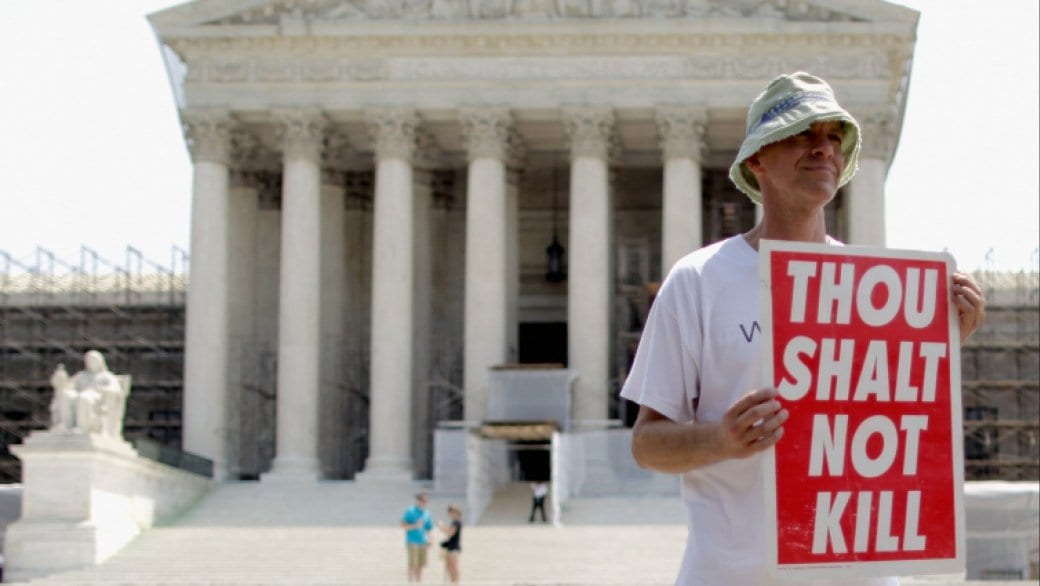Have you heard about Saudi Arabia? You know they execute gays there, right? And Iran? Just as bad.
You might have also heard about Sudan and Yemen, where the law calls for capital punishment of homosexuality. Not to mention Somalia, Nigeria, Pakistan, Mauritania, Qatar, Brunei and Afghanistan, all countries whose laws call for homosexuals to be executed.
The terrible fact that homosexuals live in fear of state-sanctioned death simply for existing in these countries is often cited as one of those awful truths of the oppression that queer people still face in parts of the world less fortunate than Canada. Or, it’s cynically cited by politicians like Conservative leadership hopeful Kellie Leitch to justify divisive and oppressive policies toward Muslim Canadians and Muslims who aspire to be Canadians.
But as much as the legal execution of queer people is an obvious wrong, criticizing Saudi Arabia for its lack of gay rights is like a firefighter considering paint swatches while a house burns down.
Let’s be clear. None of the 11 countries I listed above would be bastions of human rights if only they stopped killing homosexuals.
With the exception of Nigeria, arguably none has a functioning democratic government. Women have limited rights compared to men. Basic freedoms of speech, conscience, religion and assembly are severely limited. Where rule of law is upheld at all, defendants typically do not have access to fair trials or humane treatment.
Take a look at some of the other crimes that carry the death penalty in Saudi Arabia: adultery, atheism, apostasy, blasphemy, carjacking, drug use or possession, fornication, idolatry, robbery, sedition and political opposition, sorcery and witchcraft.
The long list of “crimes” for which the death penalty is an available punishment is clearly tailored not to the preservation of justice, but to the preservation of an order that oppresses minorities — sexual and gender minorities, yes, but also religious, political and racial minorities, as well as the poor, and potential political opponents.
Saudi Arabia isn’t alone on this count. The United States — the only western country to maintain capital punishment — has long been criticized for the disproportionate use of the death penalty against racial minorities and the poor, especially Black Americans and immigrants. According to the Village Voice, anti-LGBT bias is also exploited in US death penalty cases. (In colonial America, homosexuals were also executed.) Where the death penalty is not sought, it is often used to coerce confessions and plea bargains.
Queer people ought to recognize the injustice immediately: the key evil isn’t the death penalty for homosexuality — it’s the fact that the death penalty exists at all.
A growing global movement recognizes this injustice. The death penalty has been almost completely eradicated from Europe, Latin America, Oceania, and Southern and West Africa. There are 102 countries that have abolished the death penalty. According to Amnesty International, while 2016 saw a record surge in executions, 140 states across the globe (nearly two-thirds of countries) are considered “abolitionist in practice,” meaning that they haven’t executed anyone in 10 years and have a policy of not seeking the death penalty even though it remains on the books. Mauritania is actually one of the “abolitionist in practice” countries, though the potential to put homosexuals to death lingers.
Legislative abolition of the death penalty in many countries is sometimes tied with general updates to criminal codes — many of which were inherited from the colonial period. These updates can sometimes achieve wider justice goals, including eliminating gender biases and decriminalizing homosexuality. When Nauru updated its criminal code last year, it eliminated both the death penalty and the prohibition on sodomy.
Continuing to build the global consensus against the death penalty is not only a good goal in itself, but could help to achieve wider justice goals for LGBT people, especially in some of the countries listed above.
But the United States remains one of the biggest obstacles to achieving this consensus. While the US justice system isn’t quite the charnel house of its counterparts in China, Iran, Pakistan, or Saudi Arabia, the US is the only Western country to retain the death penalty. Aside from those four countries, the US executes more people than any country. And capital punishment remains popular there — abolition referendums in three states last year failed to pass. In California, referendums have failed twice in the last five years, and by a wider margin the second time.
Still, abolishing the death penalty must remain a principal aim for anyone claiming to seek justice. For queer people, it is literally a matter of life and death.


 Why you can trust Xtra
Why you can trust Xtra


